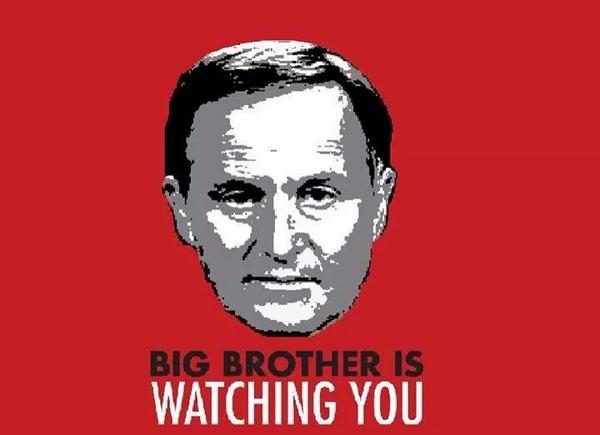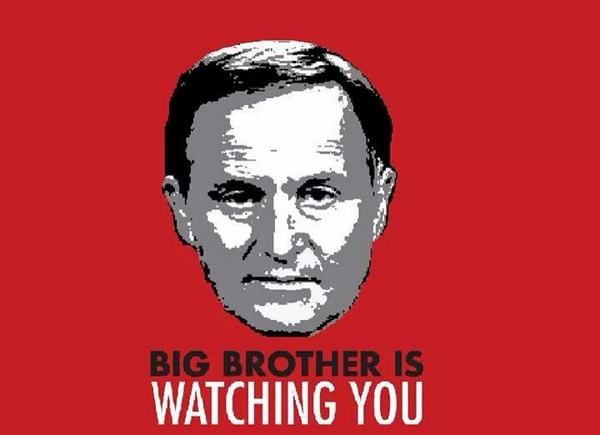
When New Zealand amended the Security Intelligence Service (SIS) Act in 1996, it was the first significant change in almost 20 years. The 20 years since that amendment have seen a constant stream of law changes extending the powers of the country’s spies. The Intelligence and Security Bill currently before Parliament is the latest of these. In this series of three articles, I outline why I think this Bill represents the most disturbing attack to date on the rights and freedoms of New Zealanders.
Part One
Spies Target Political Activists
When the SIS Act was amended in 1996, the Cold War was over and the War on Terror had yet to commence. The former Soviet Union had fragmented into multiple states and the Berlin Wall had been reduced to landfill. US President Bush had announced “a new world order” and launched it with a high-tech military bombardment of Iraq televised live to show the world that, in his words, “what we say goes”. Although its precursor materials were being created, the war on terror had yet to erupt; the New York syline still being pierced by the twin towers of the World Trade Centre.
Around the world, spy agencies that had been established to protect the “free world” from the “evil empire” had to give up looking for reds under our beds and find a new enemy. With the end of communism, the new right-wing doctrine was neoliberalism and its zealots were everywhere. Privatisation, deregulation, spending cuts and free trade agreements had replaced thermo-nuclear war as their weapons of choice for achieving global domination.
Globally, the neoliberals had scored a significant victory with the creation of the World Trade Organisation (WTO) in 1995. Nationally, New Zealanders had endured more than a decade of being bludgeoned by the despised Rogernomics and Ruthenasia. And at the regional level, nothing was more important to the neoliberal project than APEC.
It was against this background that the 1996 law change extended the powers of the SIS to concern itself with threats to the country’s “economic well-being”. At the time, the SIS was best known for having supplied the 1981 National Govenment with the “evidence” to claim the anti-tour movement was a communist front. The SIS had been unable to prevent the only two post-war acts of terrorism in New Zealand – the sinking of the Rainbow Warrior and the bombing of the Wellington Trades Hall. New Zealand was out of ANZUS and offside with the US but despite all the dire warnings, there was no increased feeling of national insecurity and certainly no sense that we needed the SIS to protect us.
Worst Fears Confirmed
People warned that the “economic well-being” clause in the new law wouod give the SIS the green light to target groups opposing the onslaught of right-wing economic policies. Within two weeks of the Act coming into force, a series of events took place that confirmed all of our worst fears.
Christchurch activists had decided to oppose a meeting of APEC Trade Ministers in the city by organising Trading With Our Lives, an international conference highlighting the human costs of free trade. On the Saturday night, day two of the conference, I drove one of the speakers to the airport and on the way home stopped to pick up some video equipment from the house of one of the organisers, Aziz Choudry.
As I drove up, two men ran from the house. I chased them down the street and caught one. He insisted he had taken nothing and pleaded for me to give him a break but refused to come back to the house with me. On a dark suburban street on a winter’s evening in the days before cell phones, I decided the best plan would be to simply stay with him. Eventually a car roared up, threw open a door, he jumped in and was gone. I got the number plate and reported the break-in to the Police.
The “APEC Bomb”
The following Wednesday, a package labelled “APEC Bomb” was left outside the offices of the Christchurch City Council. The next day, the Police raided Aziz’s house looking for him, me and bomb-making equipment. On Sunday, they searched my house.
The City Council connection was that in the lead-up to the event, somebody had the brilliant idea of booking the Council foyer for an anti-APEC display at the time of the APEC meeting. When the Council realised what was going on, they took down the display and were publicly attacked for stifling free speech. I had nothing to do with the display and was out of the country when the controversy erupted, so I was suprised to be told during the search that I was one of only two suspects for the fake bomb. It was also odd that they thought I lived at Aziz’s place. I raised these questions with the sergeant in charge of the search who agreed to make some inquiries for me. The next day he called me back saying that he had asked his boss and had been told “keep your bloody nose out of it”.
It was at that point that we concluded that the guy I had caught was not your average burglar. We publicly pointed the finger at the SIS and laid complaints with the Inspector-General of Intelligence and Security and the Police Complaints Authority. Those pushing the new law claimed that the Inspector-General was a guarantee that law-abiding New Zealanders would not suffer unfairly at the hands of the SIS.
Complaints got nowhere
The first person to be appointed Inspector-General was Laurie Greig who would later resign in disgrace after comments he made about another innocent victim of the SIS, Algerian refugee Ahmed Zaoui. Our complaint was his first. The person who investigated my complaint against the Police was Rob Pope, later to gain notoriety for leading the Marlborough Sounds murder case that put Scott Watson behind bars.
Both complaints got nowhere. Pope found no fault on the part of the Police and refused to even give me his findings in writing. And Greig concluded blandly that “no law had been broken”. His report did not mention any SIS involvement at all.
Then along came Auckland QC, Rodney Harrison. He advised us that if the guys I disturbed were their agents, the SIS could be sued for unlawfully breaking into Aziz’s house. He agreed to take the case and filed a statement of claim against them. It was only then that the SIS admitted responsibility, but claimed that they were acting within the law.
SIS and Police both broke the law
The Court of Appeal found against the SIS, ruling that a warrant to intercept communications did not include a right to break into people’s houses. The SIS made a confidential compensation payout to Aziz and the government promptly passed new legislation to retrospectively legalize all the illegal break-ins the SIS had carried out over the previous 20 years.
I then sued the Police for unlawfully searching my home. After a revealing three-day hearing in the High Court, the Police were ordered to pay me $20,000 in compensation in a judgment stating the “worst aspect of the case” was that the Police searched my house because I was “an activist in what (I regarded) as social justice causes”.
The SIS together with parts of the Police were clearly targeting people who were lawfully exercising their democratic rights. Equally clearly, the official channels of complaint for protecting people’s rights were absolutely useless.
After the victories in court a friend in my football team who had grown up in Pinochet’s Chile remarked – I can’t believe you can just do that in New Zealand, sue these guys in court. If the current Intelligence and Security Bill becomes law, we will never be able to take them to court again.
David Small is a lawyer and a Senior Lecturer at the University of Canterbury. One of his areas of research is the balance between national security and civil liberties. In 2011, he was Fulbright Senior Scholar at Georgetown University Law Center studying alternative approaches to anti-terrorism for low-risk countries. He has made submissions on virtually every piece of New Zealand legislation impacting intelligence, security and surveillance since the 1996 NZSIS Amendment Act.






Well , there we have it.
Collusion .
Collusion that necessitated retrospective changes in legislation to avoid future prosecution of the SIS and GSCB in our courts.
Legalizing the illegal.
How interesting.
The first steps towards a Kristallnacht type acceptance of totalitarianism.
Except that the methodology is far more subtle and less brutish than Kristallnacht . Cloaked in legalese, kept out of the glare of media scrutiny , achieved by nameless faceless individuals who are never seen as the true instigators of anti democracy ,leaving those accused to battle against elements of the state that hold all the power.
The suppression of legitimate free speech. Targeting of those that would dare criticize the govt.
What does this remind you of , people?
That’s right.
Fascism.
Thank you for a little more background to the diabolical predicament we find ourselves in, David.
This is just more conformation that the biggest threat to the health, wealth, welfare and security of people living in NZ comes from the government, and from the bankers, corporations and opportunists whose short-term interests the government represents and promotes.
With all official mechanisms for holding them to account neutered or blocked, presumably the looters and polluters club’s next phase of control of the populace will involve removal of ALL mechanisms for expression of dissent.
The only good news is that ‘the system’ is in the process of rapidly destroying itself via corruption, inefficiency, ineffectiveness, lies and the squandering of energy and resources.
✯Ново-Зеландия✯
NZ Intelligence Services are a complete and utter joke.
Oversight is by the NSA and CIA.
I will resign if GCSB spies on kiwis!@#$$%^&*()_.f
Bloody liar key!!!!!!!!! The lowest of the low.
It is truly disturbing that so many adult New Zealander’s have no first-hand experience of anything pre-Muldoon, pre-Rogernomics, and pre-Ruthenasia, and are surprised to learn that NZ has not always been a lip service democracy and best friend of the bully nations.
Memories of Norman Kirk expressing the voice of New Zealanders by sending an RNZN frigate into the test exclusion zone to challenge the French nuclear test program in the South Pacific are dying out.
This past example of our Government carrying out the will of the people is not being celebrated or commemorated often or loudly enough to become firmly fixed into the cultural memories of those born after 1975.
Muldoon’s misuse of the SIS to hound Colin Moyle out of Parliament was when I first became aware that NZ had an internal intelligence service, and that Muldoon had absolutely no qualms about misusing it illegally for political gain.
That shameful episode was my introduction to dirty politics.
This has all been intensified and accelerated into a nasty race to the bottom since then.
[…] Part 1 here. […]
[…] The latest increase in state power will see the GCSB and SIS be able to break any law they like. […]
Comments are closed.